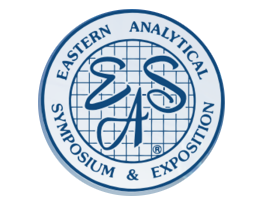One-Day Course
Sunday, Nov. 17; 8:30am – 5:00pm
Mr. Joseph Turpin, S-Matrix Corporation, Indianapolis, IN
COURSE DESCRIPTION
The most valuable knowledge obtainable from a method development experiment is the exact nature of the study factor effects on the shape and movements of each sample peak across the experimental region. Extracting this level of knowledge normally requires peak tracking. This course presents a method development platform and workflow which includes PeakTracker™ – a powerful new peak tracking technology within the Fusion QbD® software platform. PeakTracker automates, optimizes, and simplifies the use of PDA and MS data in quality-by-design method development. Automated MS data based peak tracking within a chromatography software framework greatly advances chromatographic method development.
WHO SHOULD ATTEND
Laboratory directors and managers responsible for improving the efficiency, productivity, and quality of results generated by analytical development labs. Laboratory scientists charged with developing robust, transferrable LC and SFC methods.
TOPICS
1. Challenges of Peak Tracking in Method Development Experiments
a. Co-elution and changes in elution order
b. Peaks with identical mass-to-charge ratio (m/z)
c. Peaks which do not absorb or do not ionize
2. Limitations of PDA and MS data in Isolation
a. PDA data limitations– spectra similarity and co-elution
b. MS data limitations – identical mass values and non-ionization
c. Benefits of integrating PDA and MS data in automated peak tracking
3. Deconvolution of Co-eluted Peaks
a. Addressing peaks with identical mass-to-charge ratio (m/z)
b. Addressing non-absorbing and non-ionizing peaks
ABOUT THE INSTRUCTORS
Mr. Joseph Turpin is currently Director of Chromatography Products and Services with S-Matrix Corporation in Indianapolis, IN. Mr. Turpin was previously with Eli Lilly and Company, where he worked in analytical development and the application of analytical technology in support of new drug development for more than 28 years. During his tenure at Eli Lilly Mr. Turpin was part of the leadership team responsible for the onboarding and rollout of Lilly’s current chromatography data software, laboratory information management system, and electronic lab notebook platforms. He was also directly involved with the development and commercialization of eight of the company’s blockbuster drugs. Mr. Turpin’s research interests include gas and liquid chromatography with particular expertise in chiral separations, supercritical fluid chromatography, GC/MS, LC/MS and the application of Quality by Design in the development of analytical methods.

